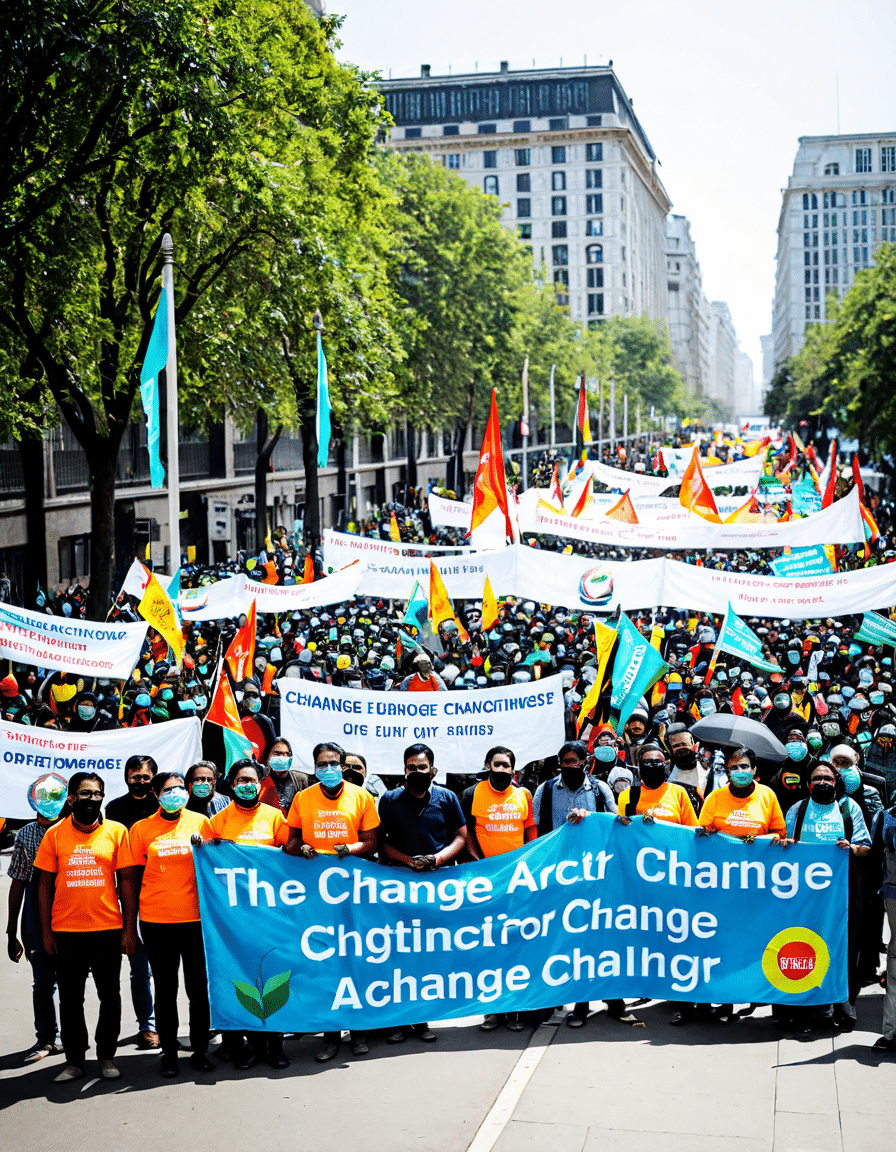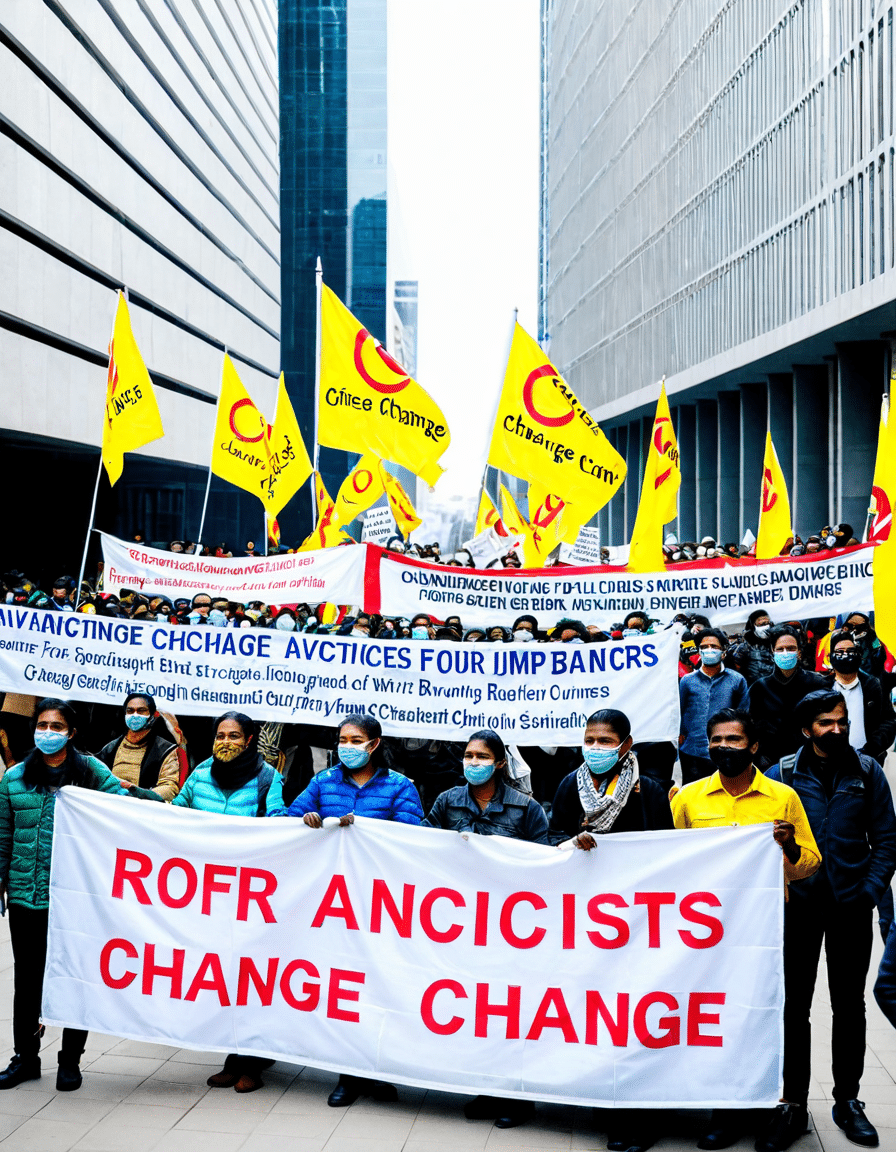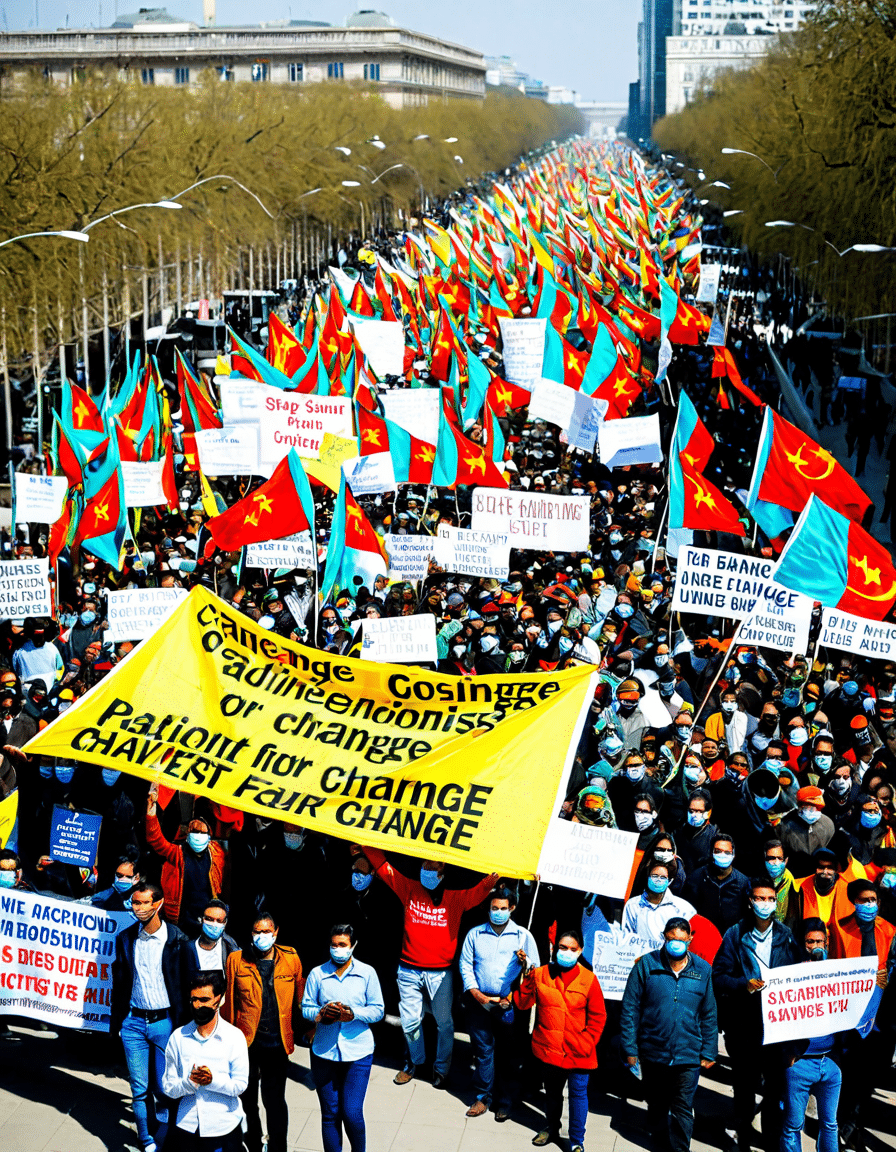
Understanding the Role of Sanctioned Individuals in Global History
Sanctions have woven their way through the fabric of global politics for decades. They act as a double-edged sword, enabling countries to express discontent, punish unacceptable behavior, and uphold international law. Sanctioned individuals—from influential political leaders to powerful corporations—have significantly impacted history, shaping economic, social, and political landscapes. Learning from these figures gives us a lens into the intricate web of international relations, understanding the forces that drive global events.
International sanctions aim to manipulate behavior, holding leaders and regimes accountable for their actions. Yet, the story becomes nuanced when we consider the many responses to such measures. Figures like Vladimir Putin and Bashar al-Assad illustrate how the narrative can twist and turn, often defying the intentions behind sanctions. In scrutinizing their journeys, we reveal layers of complexity surrounding global governance and ethical dilemmas that continue to challenge nations.
The dynamics surrounding sanctioned individuals not only reveal failures in policy but also hint at deeper issues that plague international diplomacy. Within these stories, we find lessons that resonate far beyond individual characters. The impact of their actions and the sanctions against them highlight the ongoing dance of power, discontent, and the pursuit of justice on the global stage.

Top 7 Sanctioned Figures: Enduring Legacies of Disruption and Discipline
1. Vladimir Putin: The Reluctant Authoritarian
Vladimir Putin has been a dominant force in Russian politics for over two decades, often pushing boundaries with his assertive foreign policy. Following the annexation of Crimea in 2014, Putin’s government faced widespread sanctions from Western nations aimed at signaling disapproval. Surprisingly, instead of crumbling under these pressures, Putin has managed to maintain a predominantly tight grip on power. His tactics not only cultivate nationalistic sentiments but also serve to unite his supporters against a perceived foreign adversary.
Despite the sanctions, Putin has demonstrated a remarkable ability to endure and adapt. The Kremlin’s responses often exploit the narratives of foreign aggression, framing sanctions as external attempts to undermine Russia. Thus, elements of discontent within the country are redirected toward resisting the West, which perpetuates his regime’s resilience even against international efforts to thwart it.
Putin’s international actions—particularly in Eastern Europe—continue to ripple through global politics. His management of domestic crises amid sanctions exemplifies the manipulative dynamics of power, revealing a leader who remains unyielding even in the face of global isolation.
2. Bashar al-Assad: A Regime Marred by Bloodshed
Bashar al-Assad’s tenure as the Syrian president reflects a harrowing saga marked by immense bloodshed and suffering. His regime has been subjected to sanctions intended to hold him and his associates accountable for severe human rights abuses during the longstanding Syrian Civil War. These punitive measures have aimed to isolate Assad’s regime, though achieving that goal has proven complicated and daunting.
Despite repeated sanctions, Assad’s government remains entrenched, thanks in part to support from allies such as Russia and Iran. The ongoing humanitarian crisis in Syria—as millions flee or face dire conditions—serves as a glaring illustration of the tragic consequences of international decisions. While the sanctions sought justice, their effectiveness has been underwhelming, entrenching a status quo that only prolongs the ordeal.
The story of Assad exemplifies the tangled nature of sanctions and international politics. As global inquiries gather data on his regime’s actions, the humanitarian disaster in Syria aggravates concerns over accountability and justice in the international arena.
3. Nicolas Maduro: The Superficial Savior
Venezuelan President Nicolas Maduro has become synonymous with controversy, leading the country through a severe economic meltdown amid allegations of corruption and mismanagement. His government has faced a slew of international sanctions aimed at restraining his grip on power and condemning the economic chaos. However, these sanctions often clash with Maduro’s steadfast reliance on nationalist rhetoric to maintain a loyal following among his supporters.
In a country grappling with critical shortages of food and essentials, Maduro continues to operate under a facade that portrays him as the people’s champion against foreign adversaries. This superficial savior narrative cleverly shifts blame away from domestic policy failures and allows him to deflect responsibility. By framing sanctions as an assault on Venezuela’s sovereignty, he staves off further discontent from those who might challenge his rule.
Maduro’s situation highlights the complexities of sanctions and their often disrupted intended impact. The irony lies in how these international efforts to compel change can inadvertently bolster leadership narratives that prioritize personal power over the pressing needs of the population.
4. Kim Jong-un: An Indefinitely Erratic Leader
Kim Jong-un, North Korea’s leader, stands at the center of one of the world’s most precarious geopolitical landscapes. His relentless pursuit of nuclear weapons has prompted numerous sanctions designed to limit the country’s military capabilities. But rather than submit, Kim Jong-un insists on defiantly pushing forward, effectively scaring other nations and stabilizing his rule through external threats.
The North Korean regime frequently paints sanctions as an indicator of foreign hostility, bolstering Kim’s image as a necessary protector of his people. His leadership style emphasizes resilience and strength among a population subjected to restrictive conditions. However, the sanctions contribute to ongoing international tensions, complicating diplomatic efforts aimed at denuclearization.
Kim’s enduring defiance represents the tenuous balance of power in East Asia. As sanctions continue to affect North Korea’s economy, the potential for future negotiations remains questionable. The international community grapples with the challenge of addressing the regime’s nuclear ambitions while attempting to mitigate humanitarian concerns.
5. Iran’s Ayatollah Ali Khamenei: The Restraining Figure
As the Supreme Leader of Iran, Ayatollah Ali Khamenei plays a significant role in shaping Middle Eastern geopolitics, especially amid rising Sunni-Shia tensions. The sanctions imposed due to Iran’s nuclear program have revealed the difficulties of managing international diplomacy. Khamenei’s tenure emphasizes a strategic defiance against these external pressures, framing sanctions as a test of national strength.
Under his leadership, Iran has resisted diplomatic overtures, remaining steadfast in its positions. This resilience not only showcases Khamenei’s role as a key figure in the conflict but also accentuates the limitations of sanctions as a tool for ethical and behavioral reform. The complexities surrounding Iran’s nuclear program compel observers to question whether sanctions can effectively lead to significant changes in behavior.
Iran’s situation serves as a crucial reminder of the multifaceted realities surrounding sanctions in political contexts. Khamenei’s unwavering stance amid growing scrutiny forces the world to reconsider the efficacy of such actions, as they often fail to yield tangible results.
6. Liu Xiaobo: A Symbol of Dissidence
The late Liu Xiaobo, a Chinese dissident and Nobel Peace Prize laureate, illustrates the human price of political repression. Liu’s activism for human rights in China led to his imprisonment, drawing international condemnation and calls for sanctions against Chinese officials involved in human rights violations. His tragic death while being treated for cancer underscores the grievous consequences of dissent in an increasingly repressive state.
Liu represents a broader struggle for freedom of expression and the right to advocate for fundamental human rights. The international community’s response to his imprisonment and subsequent death reflects a collective commitment to address human rights abuses, even as real-time implications remain complex. The ongoing sanctions against Chinese officials indicate a search for accountability and justice, albeit fraught with challenges.
Liu’s legacy symbolizes a confrontation against a regime that often disregards civic freedoms. His plight serves as a reminder that the fight for human rights frequently involves personal sacrifice—an essential element that should not be lost amid discussions about sanctions.
7. Julian Assange: The Indicted Whistleblower
Julian Assange, the founder of WikiLeaks, represents a contentious crossroad of press freedom and government accountability. His indictment in the U.S. has stirred a global debate about the ethical implications of leaking classified information. Sanctioned and pursued for his disclosures, Assange’s ongoing legal battles raise essential questions regarding the balance of national security and the public’s right to know.
Many consider Assange both a whistleblower and a scapegoat in a broader conversation about transparency. His case reflects the tension between state control and the desire for open information, complicating international discussions about censorship. While the U.S. government seeks to uphold national security, Assange’s plight resonates with advocates of press freedom globally.
Assange’s nuanced narrative challenges how societies engage with sanctions and the state’s efforts to suppress dissent. The implications extend beyond Assange himself, serving as a litmus test for contemporary journalism and accountability in an increasingly digital age.
The Dual Nature of Sanctions: Sought Justice and Reluctant Compliance
Historically, sanctions serve two functions: to punish wrongful actions and to provoke behavioral changes. Figures like Putin and Maduro often exhibit resilient compliance, portraying themselves as victims of foreign aggression rather than accepting the responsibility. These dynamics can lead to an ironic outcome where leaders leverage sanctions to fortify their power, transforming adverse circumstances into tools of manipulation.
The persistent defiance seen in numerous sanctioned leaders demonstrates a pattern where external measures can inadvertently empower authoritarian narratives. Much like a talent show, the performance of resilience transforms sanctions into rallying calls for unity against perceived oppression. With these tactics, sanctioned figures craft stories that reinforce their authority, obscuring the potential benefits sanctions might have brought to their nations.
In this duality lies the ongoing challenge for global diplomacy and the implementation of sanctions. As leaders use sanctions to bolster domestic narratives, the intended effect of diplomatic measures becomes muddled. By understanding this dual nature, the international community can better anticipate the responses of sanctioned figures and refine their approaches toward more sustainable solutions.
The Impact of Sanctions on Global Dynamics
The dynamics surrounding sanctioned figures serve as a reminder that the consequences of sanctions can extend far beyond individual actors. While these actions may aim to discipline erratic global actors, the persistent defiance we witness frequently exposes the superficial calculations underlying many international relations. Countries often find themselves entrenched in disputes, entangled in humanitarian crises, and grappling with ethical dilemmas—presenting a challenging landscape for policymakers.
Amid ongoing shifts in power dynamics, it’s critical to understand how sanctions might influence future global relations. The legacies left by these sanctioned figures underscore the enduring complexities of statecraft and interaction, affecting strategies that prioritize diplomacy over punitive measures. Examining these cases invites a broader dialogue on the efficacy of various approaches, including sanctions, as nations seek to navigate a path forward.
As we reflect on these sanctioned individuals, we must acknowledge that the journey of imposing sanctions presents unique challenges that ultimately extend beyond the individuals involved. The patterns and stories shaped by their actions and the international community’s responses reveal an intricate tapestry of global politics, emphasizing the ongoing need for engagement and interpretation. The ongoing conversation about sanctions remains far from settled, demanding continuous examination as the global landscape evolves.
In sum, the narratives of sanctioned figures highlight how international measures interact with power, persistence, and prevalent ideas—making it incumbent upon us to explore these legacies further in the pursuit of justice and accountability on the world stage.
Sanctioned Figures That Shaped Global History Today
The Power of Sanctions: A Historical Perspective
Sanctioned individuals have long had a profound effect on global politics and history. Often perceived as a tool for enforcing international laws, these sanctions can influence everything from trade to individual freedoms. For instance, did you know that notorious figures like Saddam Hussein and Vladimir Putin faced significant sanctions? These measures often aim to shift their behavior, much like how competition drives teams to perform better in the college football 25 team builder by creating an environment of accountability. Interestingly, sanctions don’t just affect nations; they ripple through various facets of society, impacting ordinary citizens in ways that often go unnoticed.
Pop Culture and Sanctioned Celebrities
In more recent times, the influence of sanctions has seeped into pop culture. Sam Rockwell, known for his incredible acting chops, has spoken out about the effects of sanctions, bringing attention to the complex relationships countries have with one another. He paints a vivid picture of how these relations can get twisted, much like the plot of a gripping film. Similarly, figures like Judy Carne faced their own set of challenges in navigating public life amidst controversies and sanctions, showcasing the personal impacts behind the headlines. It’s fascinating to think about how well-known personalities can spark dialogue about global issues, igniting discussions that go beyond their on-screen roles.
The Broader Impact of Sanctions
While the concept of being sanctioned sounds daunting, it’s essential to understand its broader implications. The National Guard of the United States often finds its role intertwined with such international decisions, stepping in during times of crisis and unrest. A little-known fact: sanctions have also impacted cultural productions, as evidenced by how certain animated series like Lum Urusei yatsura had to tread carefully on political themes to avoid pushback. Sanctions reach into various fields, even forcing beauty salons, or salon de Belleza, in affected areas to adapt their business models in response to economic challenges.
In essence, sanctioned figures remind us that history isn’t formed in a vacuum—it’s a tapestry of interconnected lives shaped by political strife, pop culture, and individual stories. Whether it’s the fear of a potential Donald Trump assassination or the fleeting fame of a comedian, these narratives emphasize the nuances that define our global landscape today.




